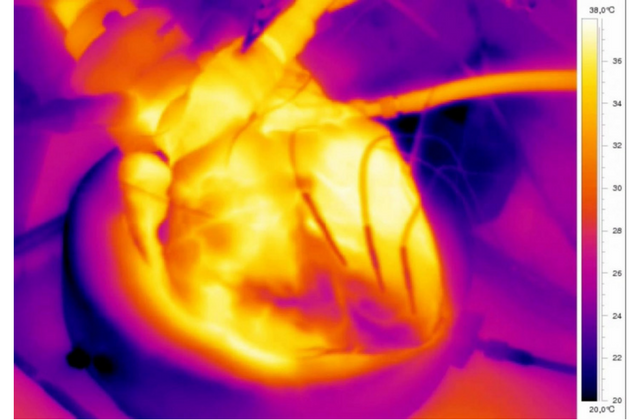 Thermal image of a human heart, the cooled portion visible as a dark spot (bottom)CATHARINA HOSPITAL EINDHOVEN For the first time, doctors have demonstrated that it is possible to safely cool a portion of the human heart during a heart attack. In 10 human patients, they showed that cooling a specific portion of the heart—affected by a constricted artery—down to about 5 °C can limit damage to heart muscle after the artery is cleared.
Thermal image of a human heart, the cooled portion visible as a dark spot (bottom)CATHARINA HOSPITAL EINDHOVEN For the first time, doctors have demonstrated that it is possible to safely cool a portion of the human heart during a heart attack. In 10 human patients, they showed that cooling a specific portion of the heart—affected by a constricted artery—down to about 5 °C can limit damage to heart muscle after the artery is cleared.
The Catharina Heart and Vascular Center is currently undertaking a follow-up study to assess the effectiveness and heath benefits of this procedure.













